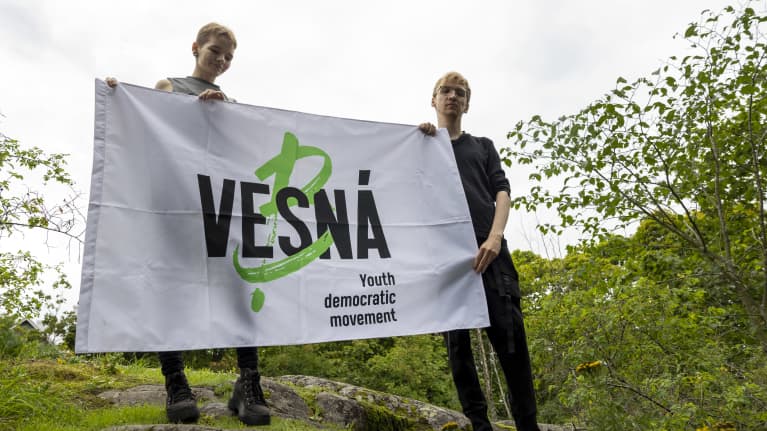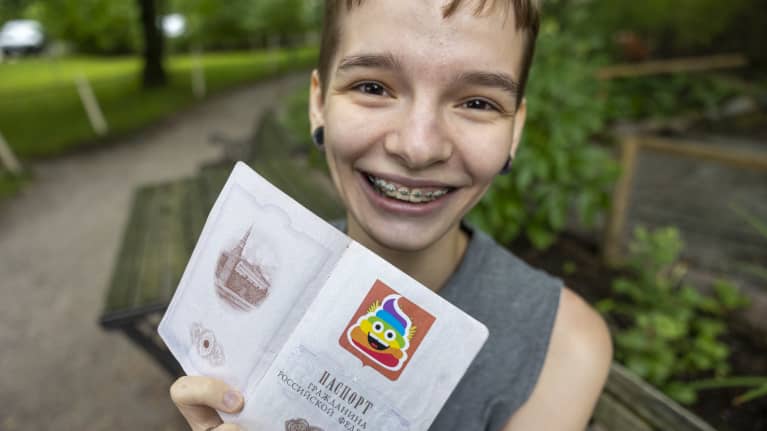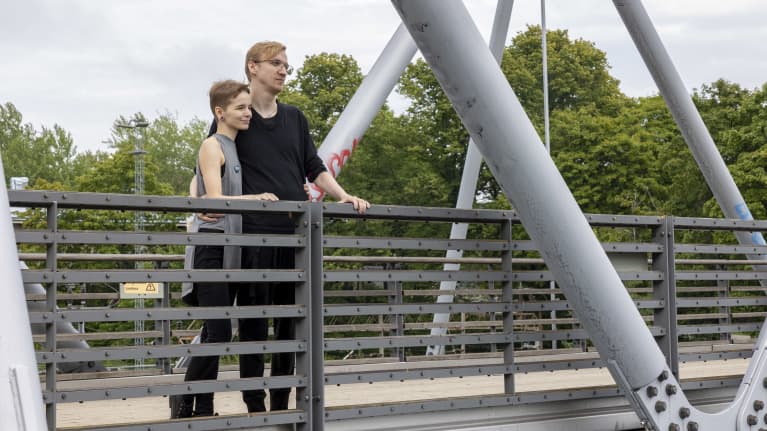The spike in Russian asylum applications to Finland following the country’s invasion of Ukraine has subsided.
Last year 1,172 Russian citizens sought asylum in Finland. In comparison, at the beginning of this month, Finnish Immigration Service Migri registered just 270 such applications.
"Last year, there was a slight spike in the number of Russian asylum seekers compared to previous years," said Juha Similä, Head of Section at Migri's Asylum Unit.
Russian asylum seeker levels are now back at typical levels of 200-500 applications per year.
Last year 85 Russians were granted asylum in Finland, whereas so far this year the number is 64, according to Migri’s figures.
Similä said the majority of all Russian asylum applications are related to the partial mobilisation that began in Russia last September.
"We are not yet able to make decisions on these applications, as the European Union Agency for Asylum (EUAA) is currently preparing guidelines related to this," he explained.
"Russia is a terrorist system"
Ilya Kanatush offers a "päivää" (Finnish for good day) when meeting with Yle's reporter.
Kanatush, who's in his 30s, has again picked up his Finnish language studies after the summer break.
He is part of a Russian generation that was able to study with relative freedom — world history and the English language.
"It has become clear to me what an important role language plays in relation to freedom," he said.
Kanatush, a psychologist from St Petersburg, left Russia as soon as the country started its war in Ukraine. He left everything behind, crossing the Finnish border on foot in March of 2022.
"I am fortunate to have made it here. Finland and the other Nordic countries are good examples of solid, free and democratic societies. Being here has shown me how important it is to defend this freedom against tyranny," Kanatush, explained.
His own views of the effects of the war are grim, noting that the war is not a local conflict, but has implications around the world.
"The free world supports Ukraine, but many countries also support Russia, at least financially," he pointed out.
Since arriving in Finland, he said he has met other Russians living here but does not socialise with them much. He told Yle he was surprised by how some of those living here are still influenced by Russian propaganda.
"Russian culture is militaristic. To me, the whole country represents a terrorist system. I don't see that societal change is possible in Russia in the near future."
Kanatush did not mince his words when it comes to the country of his birth.
"While I was still living in Russia, it was horrifying to realise that I was probably in the world's most dreadful state, whose inhabitants live in servitude."
"We try to influence Russians from abroad"

Yrii Mironov and Iryna Medvedeva are also among the 85 Russians who were granted asylum in Finland last year.
The couple left Russia in the spring of 2022, as both of them opposed the war in Ukraine. Iryna Medvedeva has long been part of Vesna, a democratic movement among young Russians that opposes Vladimir Putin's administration.
"All of my friends oppose the war. After the war started, they too had to leave Russia," Medvedeva explained.
These people are now in Germany, Georgia, France and Armenia, Mironov added.

What's most frustrating, according to the couple, is that they can't really do much right now to change the situation in Russia. Opposition activists living abroad are, however, still trying to work together and influence Russians from abroad, they said.
Mironov told Yle that both he and his family actually supported Putin before Russia's occupation of Crimea.
"Back then, the economy was growing and the standard of living was rising. When the protests led by opposition leader [Alexei] Navalny began, I initially wondered what they were protesting against, until I found out how corrupt the administration was," he explained.
Mironov's mother is married to a Finn and has been living in Finland for several years. His sister also lives outside of Russia.
Medvedeva's family members meanwhile still live in St Petersburg and support the Russian government. They consider their daughter's views to youthful beliefs that will pass in time.
Her family doesn't believe that she faces any real danger, even though the police raided the couple's home and detained her without a specific reason for several days before the couple left the country.
The couple left everything behind in Russia. Mironov abandoned friends and a well-paid job in IT. Medvedeva dropped her technology studies at university.
Up until now the couple has been living in a reception centre in Kirkkonummi, but said that they are now planning to move to an apartment.
"Our plan is to get educated, learn the language and secure decent jobs," Mironov said, adding that his job search in Finland has been impeded by a lack of Finnish language skills.

Last year 3,097 Russians applied for first-time residence permits based on employment. Since the beginning of this year, Finland has received 905 such applications. In the last two years, more than 21,000 Russians have applied for other types of residence permits in Finland.
At the end of last year, Finland was home to nearly 94,000 Russian mother tongue speakers. Russian speakers constitute the largest foreign language group in Finland. According to Statistics Finland, out of the Russian speakers living in Finland, more than 33,000 are Russian citizens.